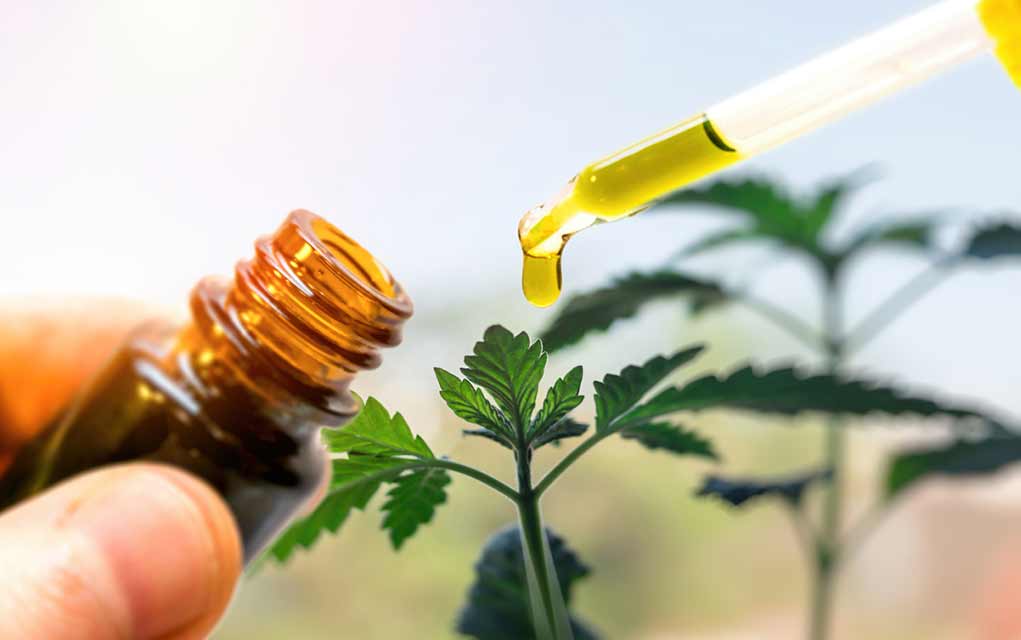What CBD Can (and Can’t) Do

Cannabidiol (CBD) has grown in popularity over recent years, gaining momentum as more states jump on the hemp and marijuana bandwagons. Claims of cures for a broad array of conditions have come along for the ride, leaving some consumers confused over its actual uses. We can help you sort through the evidence.
It turns out that CBD can reduce epileptic seizures, alleviate psychiatric disorders, help with opioid addiction and potentially protect against neurodegenerative diseases — but it can’t get you high.
What is CBD and How Does It Work?
CBD is one of over 100 active compounds found in marijuana. It’s present in even higher amounts in hemp, or strains of marijuana that are extremely low in the psychoactive component, tetrahydrocannabinol (THC). Both compounds can have profound effects on brain chemistry, particularly those associated with endocannabinoid nerve receptors, CB1 and CB2.
CBD works differently than THC; instead of binding to those receptors, it alters them and interacts with several other neurochemicals that do bind with them. This can result in certain therapeutic effects without the “high” associated with marijuana. Because CBD appears to influence the effects of so many neurochemicals, its potential as a medicine could be huge.
CBD Can Reduce Epileptic Seizures
CBD appears to have great potential in reducing epileptic seizures. CB1 nerve receptors can influence seizure activity. While CBD doesn’t directly bind with those receptors, the interaction is enough to increase the seizure threshold. The FDA recently approved the first CBD-based prescription medication for two rare and severe pediatric seizure disorders, Dravet syndrome and Lennox-Gastaut syndrome. The approval of the drug, Epidiolex, does mean CBD will finally need to be scheduled by the FDA, which could either broaden or limit its distribution.
CBD Can Alleviate Psychiatric Disorders
CBD affects serotonin receptors, which influence mood and anxiety levels. It can increase the effectiveness of GABA receptors, leading to calming effects. CBD also appears to work as a cannabinoid reuptake inhibitor, increasing levels of several natural feel-good chemicals.
Studies show CBD can reduce symptoms associated with anxiety, depression and psychotic disorders, with the potential to even treat schizophrenia. CBD may also be helpful in treating post-traumatic stress disorder (PTSD). It appears so effective at aiding in psychiatric disorders that researchers are even looking into ways to harness its effects in the form of a new class of psychotropic pharmaceuticals.
CBD Can Help With Opioid Addiction
One of the most promising areas of CBD research is its effects on opioid addiction. Studies have shown it can help with withdrawal, reduce cravings and make it easier to walk away from triggers. Just one dose can affect relapse behavior for weeks, something no other currently known medication is able to do. More research is needed in this area, but preliminary data suggests it has the potential to change the face of addiction treatment.
CBD Can’t Get You High
For all its effects, CBD still isn’t going to get you high. In fact, CBD can actually counteract THC’s intoxicating effects. When it changes the shape of the CB1 receptors, it makes them more difficult for THC to bind. This alters the connection, reducing the psychoactive effects — so, no matter how much CBD you consume, the last thing it’s going to do is get you high.
Research into CBD is still in its infancy, but it’s likely that more applications will come to light as time goes on. For example, there’s some evidence that CBD reduces inflammation, functions as an antioxidant in the brain and even protects against neurodegenerative diseases, such as Alzheimer’s. Future studies are sure to offer greater insight into the mechanisms behind this versatile and potentially lifesaving cannabinoid.








